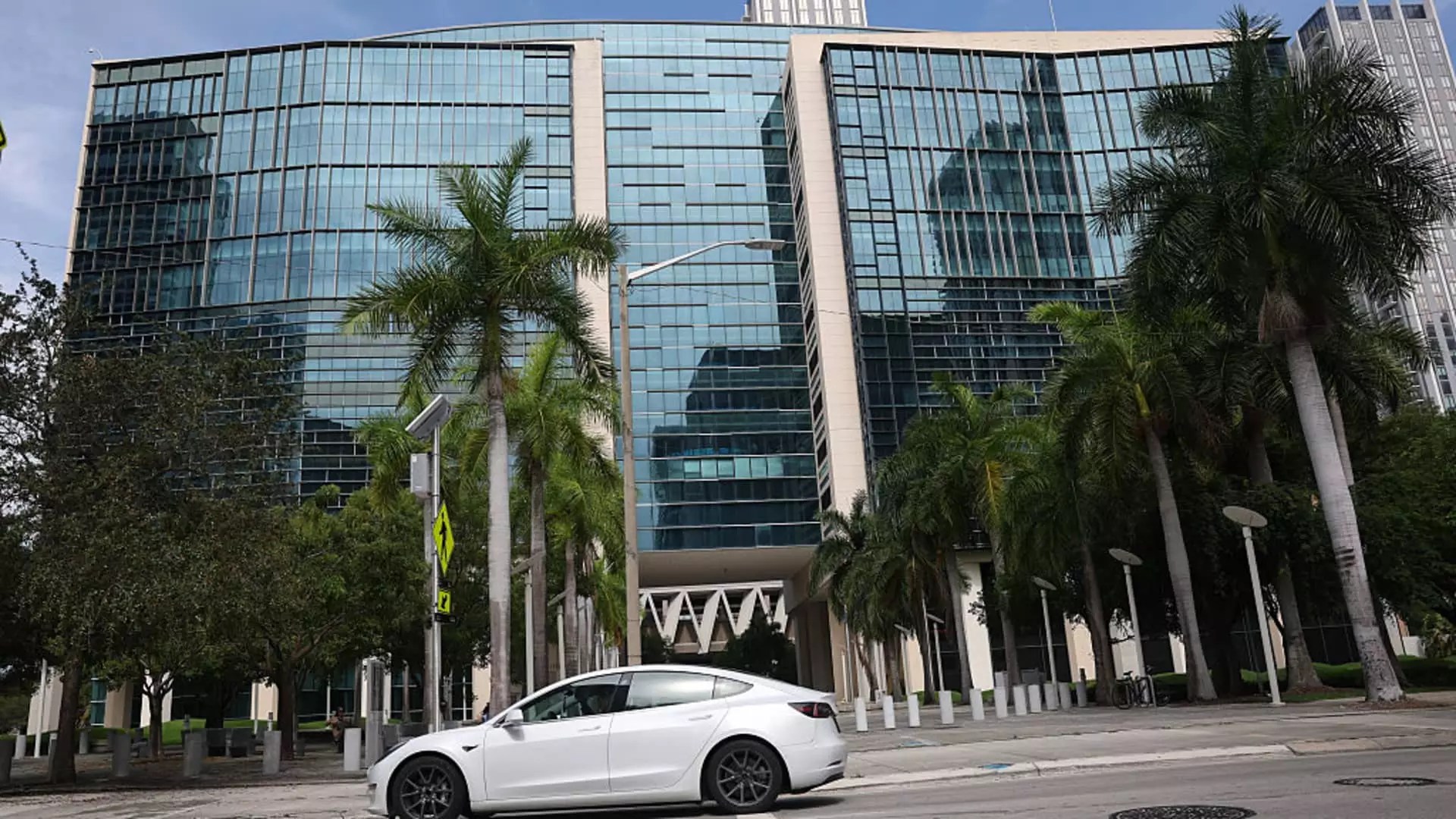Tesla’s pursuit of cutting-edge autonomous driving technology has long been a double-edged sword. On one hand, the electric automaker positions itself as a leader in innovation, promising a future where driverless vehicles revolutionize everyday transportation. On the other hand, its aggressive marketing and optimistic claims about Autopilot’s safety clash with unsettling realities: tragic mistakes, unresolved technical flaws, and mounting legal scrutiny. The recent court case in Florida exemplifies this tension vividly. It is not merely a legal skirmish over damages but a moral debate on technological responsibility and corporate transparency.
At the core of this controversy is a fatal crash involving a Tesla Model S operated by a driver using Enhanced Autopilot. The driver, distracted by a dropped phone, believed the system would brake if an obstacle appeared. Instead, tragedy struck—an 22-year-old woman lost her life, and her boyfriend was left with severe physical and psychological scars. The plaintiffs assert that Tesla’s Autopilot system had inherent flaws that the company either ignored or failed to disclose adequately, thus endangering lives under the guise of technological progress. They accuse Elon Musk’s company of overhyping safety features to maintain shareholder confidence and market dominance, potentially at the expense of public safety.
While Tesla’s defenders argue that the automaker provided adequate instructions and that driver error was responsible, this stance overlooks the broader issue: Should a company that markets semi-autonomous systems be held to a higher standard of safety and transparency? The question is not merely legal; it’s ethical. If Tesla overstated Autopilot’s capabilities, it might have fostered a dangerous complacency among drivers, making tragic accidents like this more likely. This case challenges the narrative of technological infallibility woven by Tesla’s marketing and tests whether innovation should be paired with a moral obligation to prevent harm.
The Broader Implications for Technological Progress and Corporate Integrity
This lawsuit transcends the immediate tragedy. It underscores the tension between technological advancement and moral accountability. For years, Tesla has positioned itself as a trailblazer, claiming that its Autopilot system is nearing full autonomy and that safety is paramount. However, the evidence presented suggests that the reality is more nuanced—Autopilot remains a driver-assist feature, not a substitute for attentive driving. Overpromising and under-delivering has becoming a dangerous game, especially when the stakes are human lives.
Critics in the center-right spectrum argue that Tesla’s approach exemplifies the perils of technology companies prioritizing growth and market share over safety and transparency. A company obsessed with “disruption” can sometimes cut corners or dismiss the importance of clear communication. The question is whether regulators should tighten oversight or whether the market will self-correct through legal judgments and consumer awareness. Personally, I believe that firms like Tesla must be held accountable for the risks they introduce—public safety should not be sacrificed on the altar of innovation.
This trial also exposes a fundamental flaw in the way autonomous systems are developed and marketed. If automakers rush to popularize semi-autonomous features without sufficiently testing or regulating them, they risk eroding public trust and inviting catastrophe. The idea that companies can “move fast and break things” with driver safety as collateral is troubling. Ethical development of autonomous vehicles should prioritize transparency, rigorous testing, and honest marketing—particularly because these systems operate in a legal grey area across jurisdictions.
Finally, the case raises tougher questions for policymakers and the broader industry: How do we strike a balance between encouraging innovation and enforcing accountability? The stakes are high; otherwise, the promise of safer, smarter vehicles remains a seductive myth rather than a reality. Tesla’s current predicament might serve as a wake-up call for the industry—highlighting that the path to autonomous driving is fraught with ethical, legal, and technical hurdles that cannot be bypassed in the pursuit of market dominance. If the industry refuses to heed these lessons, the tragic consequences will continue to mount, branding the so-called revolution as a reckless gamble with human lives.


Leave a Reply